Chuck Hamilton Art-Craft
Chuck Hamilton – Spalted Maple Natural Edge Bowl
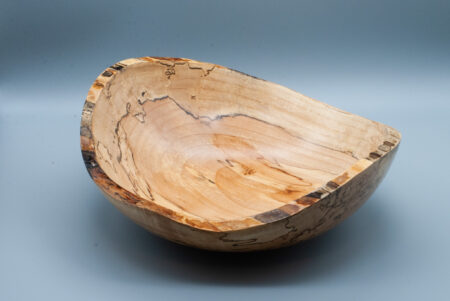
Chuck Hamilton – Padauk Monarch Butterfly Vessel
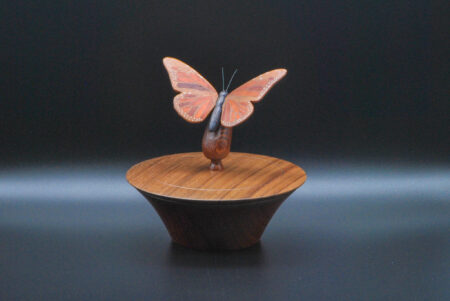
Chuck Hamilton – Ambrosia Maple-Walnut Vessel
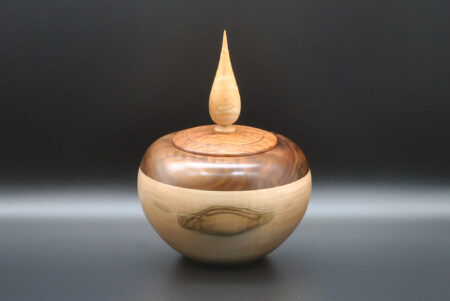
Chuck Hamilton – Sundial Vessel
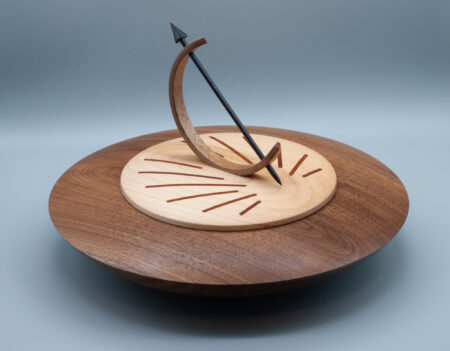
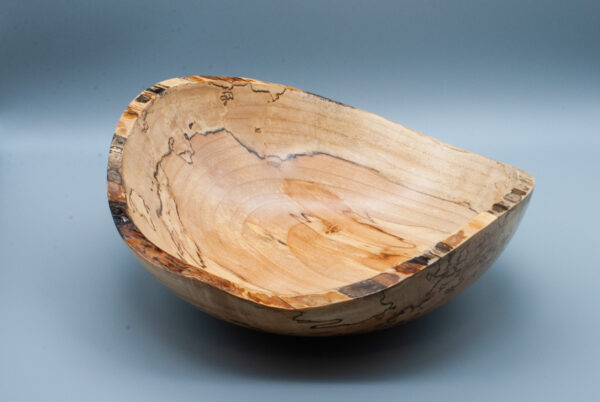
Chuck Hamilton – Spalted Maple Natural Edge Bowl
I have been wanting to turn a natural edge piece for a while. Then, I got my chance when I brought home a piece of spalted maple from a recently felled tree. So, a chunk of a tree found its way onto my lathe. I am turning half of a cylinder, sort of. The wings are formed by putting the bark side to the headstock and the flat side of the half cylinder to the tailstock. Turning the outside surface starts at the tailstock (to be the bowl bottom) and proceeds to the headstock. The wings form and the bowl comes to life. Once finished, you see all the beautiful spalting, inside and out, and the top natural edge of the bowl. The foot underneath gives the bowl the appearance of floating on the table. The bowl is finished with a semi-gloss polyurethane.
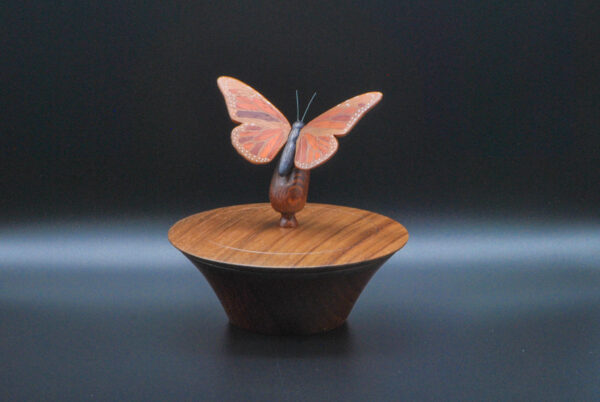
Chuck Hamilton – Padauk Monarch Butterfly Vessel
This is a vessel where I wanted to display one of our most beautiful small, winged creatures, a monarch butterfly. The vessel itself has a bottom section of padauk, a very reddish hardwood, and a top section of walnut. I turned the sides to be concave mainly because I like the look of the vessel fanning out as it reaches the top. The challenging part is in the lid, which has the butterfly. The lid is walnut, and continues the fan out of the vessel. The butterfly involves a lot of scroll saw work. The wings, which mimic the monarch, are made of cherry and more padauk using marquetry, a scroll technique for forming pictures from wood. I have added white dots to the wings, similar to what monarchs actually have. The butterfly body is a small walnut spindle turning which I then ebonized. A couple of antennae finish it off. The butterfly is fastened to the lid with a leopardwood piece that is meant to look like a milkweed pod. A satin polyurethane finish is applied to all pieces.
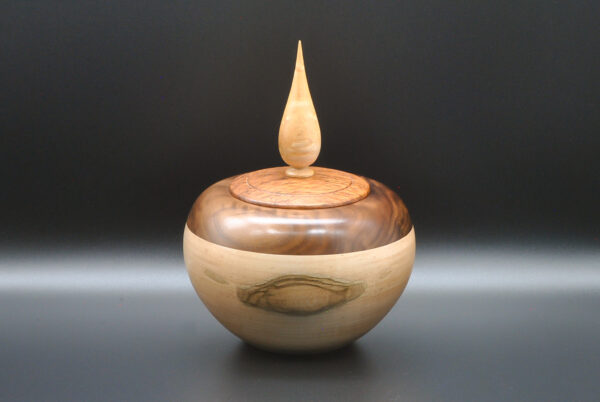
Chuck Hamilton – Ambrosia Maple-Walnut Vessel
Ambrosia maple is a beautiful wood with very distinctive figuring in the wood. So, I wanted to show it off in this piece by making the sides less steeply sloped than in other vessels. The bottom two thirds of the vessel is the ambrosia maple with a figuring that looks much like an eye. The top third is walnut which introduces some contrast and transition to the lid. The lid is another gorgeous walnut, jatoba, also known as Brazilian redwood. Its reddish tone enhances the vessel. To cap it off, I added a birds eye maple finial that is meant to look like a flame, a motif that I find very pleasing. Flames often imply things spiritual.
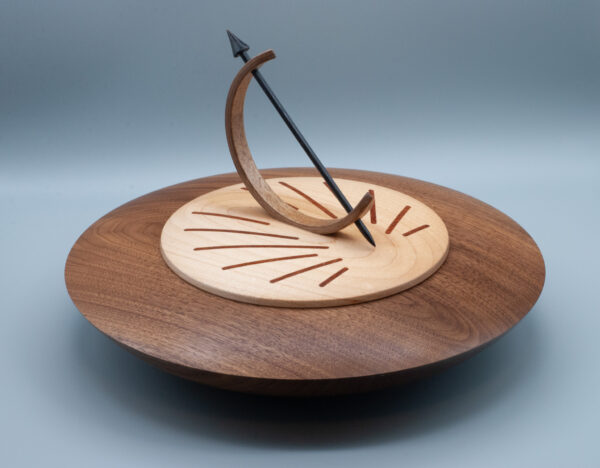
Chuck Hamilton – Sundial Vessel
Sundials have been around for centuries and come in a variety of sizes. This happens to be one of my larger vessels. The vessel is made of walnut. It has a diameter of 10 inches and a depth of about 2 inches. The style of the vessel is one of my favorites, with its convex surfaces, and the foot underneath. The vessel almost appears suspended off the table surface. The lid is where the sundial is. The lid base is curly maple. The time markers are all of partridge wood. The markers are positioned from 6 AM to 6 PM on the hour. The shadow caster is a long, then spindle turning made of walnut. It is pointed on one end and has a finial on the other. It is ebonized to give it a black appearance. Last is the hoop for the shadow caster. That is made from several layers of walnut veneer laminated together on a mandrel. The edges are trued up on the lathe before releasing from the mandrel. The shadow caster in the hoop is pointed down at 45 degrees, so the sundial is actually true to 45 degrees latitude (Salem, OR). But it’s pretty close in our neck of the woods too. A satin polyurethane finish is applied to all pieces.